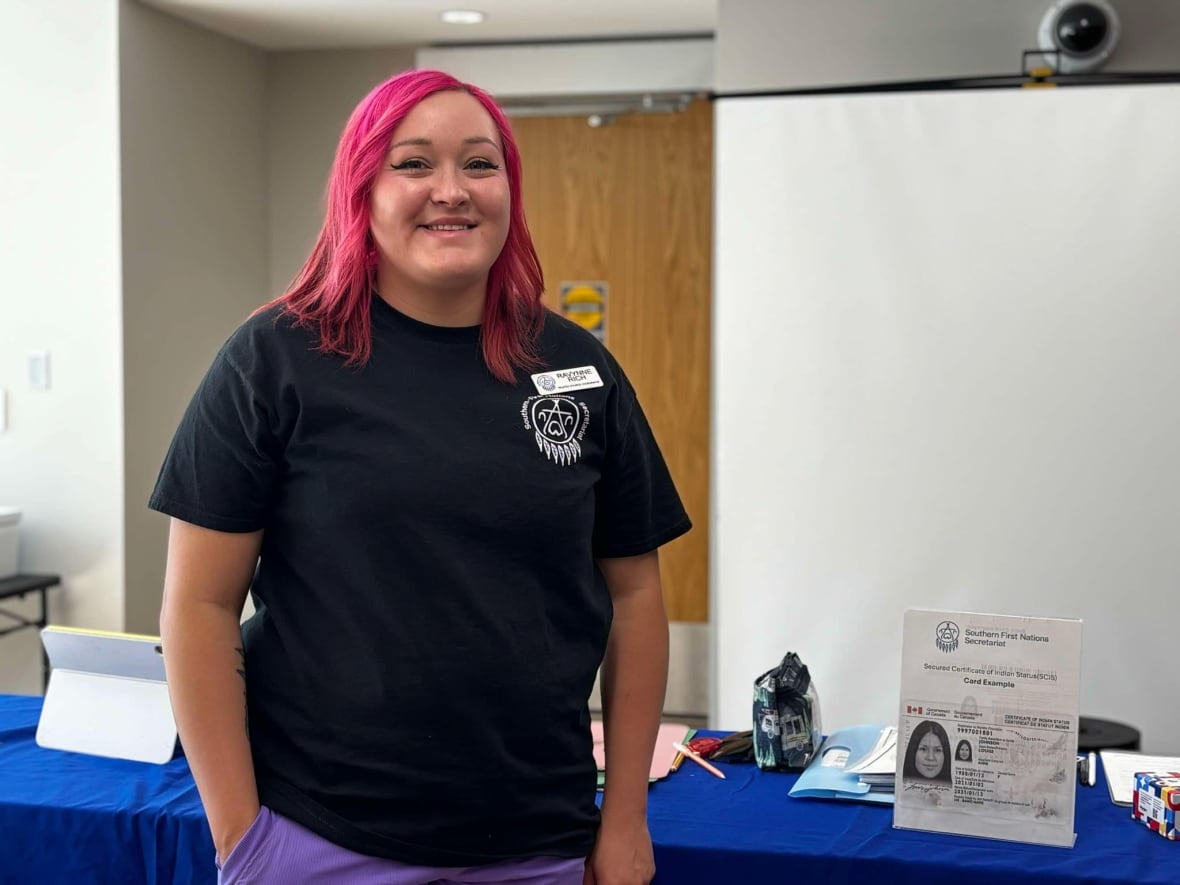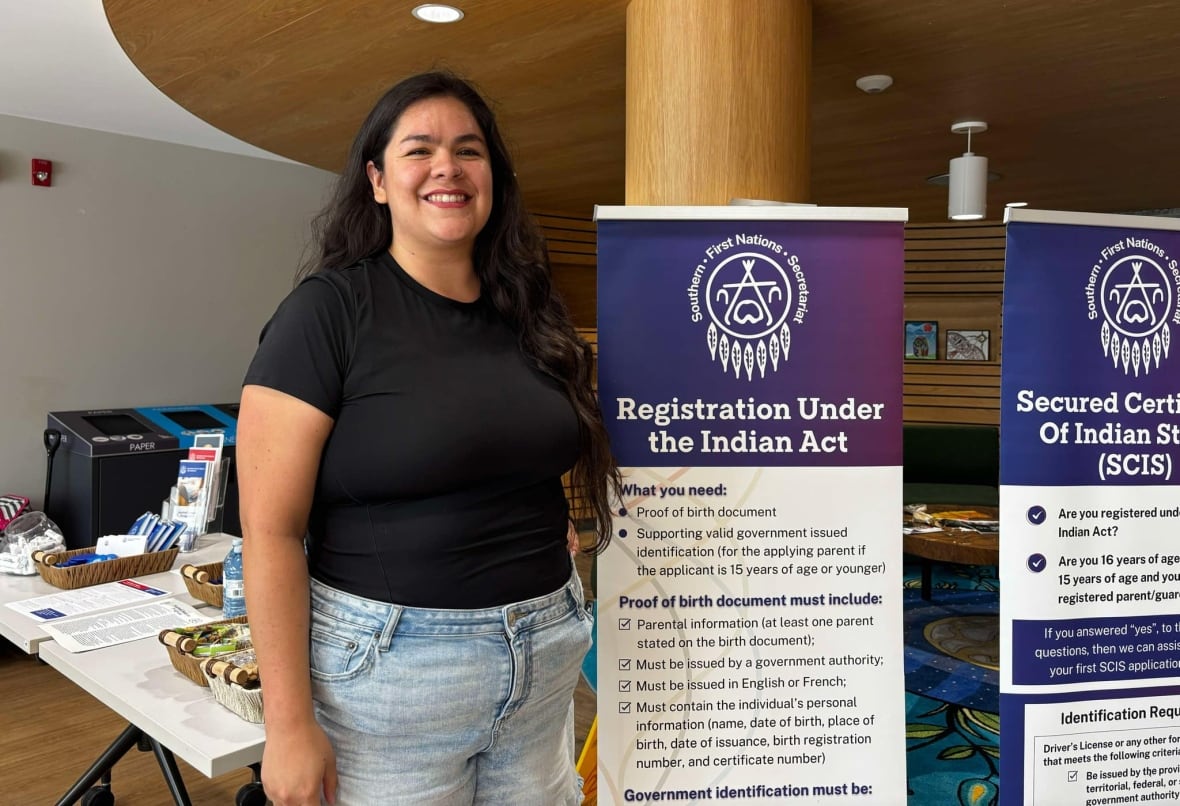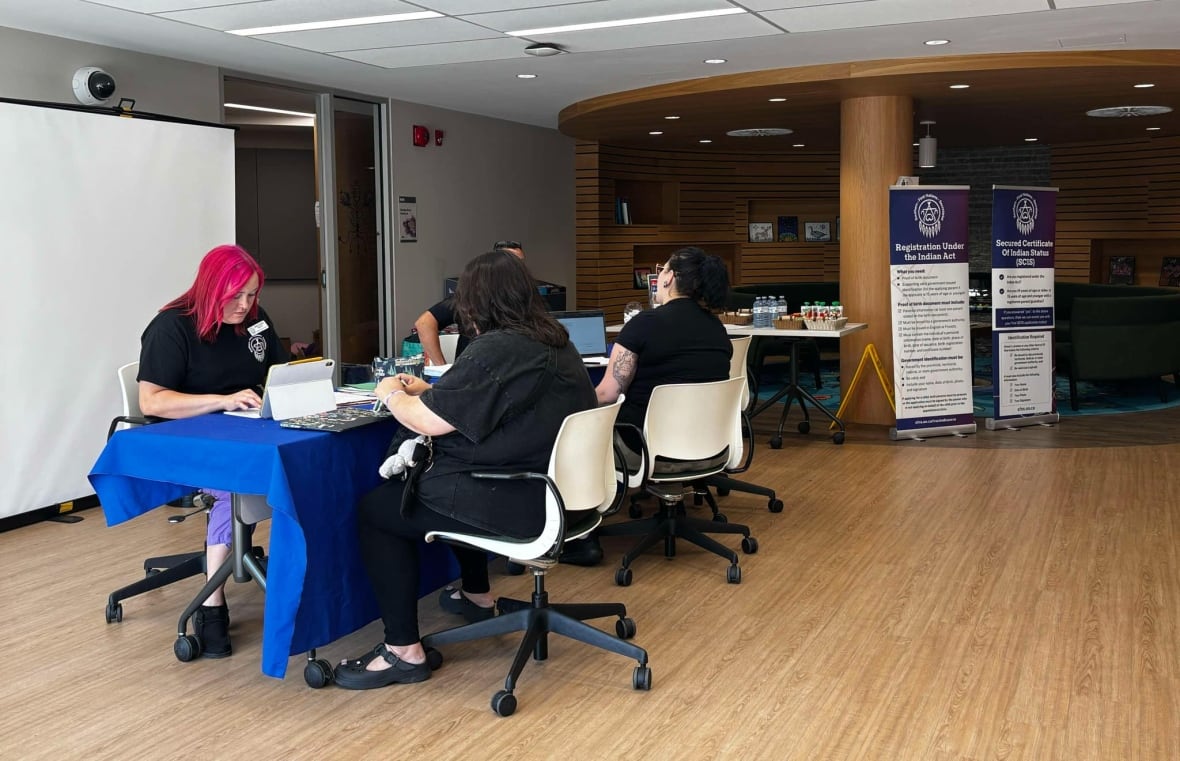Pop-up booths are making it easier to apply for Indian status cards in southwestern Ontario

A First Nations organization is hosting pop-up booths at events around southwestern Ontario to make it easier and more accessible for Indigenous peoples to apply for new and updated status cards.
The Southern First Nations Secretariat (SFNS), which is based in Bothwell, Ont., helps people fill out their status card application, take their identification photo and send it for processing – sometimes at school campuses, public parks and pow wows.
"A lot of people think that it's a very complicated process, but it's not. It takes less than 10 minutes to fill out the application," said trusted source coordinator Ravynne Noah-Rich.
SFNS primarily helps people apply for Secured Certificate of Indian Status (SCIS), sometimes called a "white card," which is an official piece of documentation that proves a person is registered under the Indian Act. It's issued by Indigenous Services Canada.
The organization has also recently been approved to help people register under the Indian Act through their booths, though they do not have the authority to determine who is qualified.

Noah-Rich is the only trusted source coordinator in southwestern Ontario, meaning that she and SFNS have been designated reliable and able to assess people's identity information by Indigenous Services Canada.
"I think it's easier to see somebody who actually lives around here, is more local, knows the program and is not a government person," she said. "It's more personable and we get to talk face to face."
Owning a SCIS card is not only proof of status, Noah-Rich said, but can also be used to cross the border or receive certain benefits and tax exemptions.
Western University grad student Rebecca Crane took advantage of the opportunity and got her first SCIS card on campus Friday.
"I think it's important to have some type of recognition for who I am, and this was a great opportunity to come do that," said Crane.
The SCIS card is an upgraded version of the Certificate of Indian Status laminated card, Noah-Rich said, but is thicker like a driver's license and has more security features.

However, many people are hesitant to get it, she said.
"A lot of people have the misconception that this is another form of government tracking and all this stuff because the reserves sometimes don't offer it," Noah-Rich said, adding that she was also skeptical when the card first came out. "It's not. It's the exact same authority of Indigenous Services Canada, it's just an updated version."
Some other misconceptions that people have about the card include that they will lose their rights or that their laminated cards will be taken away, Noah-Rich said, but she is trying to ensure that people know those rumours are not true.
SFNS sets up clinics all across southwestern Ontario including Windsor, Sarnia, Cambridge and even Toronto, typically one to two times a week.

So far, clinics typically draw between 10 to 50 people, Noah-Rich said, from young people who have never had the card to elders looking to renew.
"It's definitely helpful to meet people where they're at, and as an Indigenous person, it's always easier to do things in-person where you can connect with somebody," said Caroline Miller, who was renewing her SCIS card at Western University. "It makes the process easier."
There are more clinics happening this summer including at Nokee Kwe on July 23, Fanshawe College on July 31, Atlohsa on August 8, and the Chippewas of the Thames First Nation's annual pow wow on August 16 and 17.
cbc.ca





